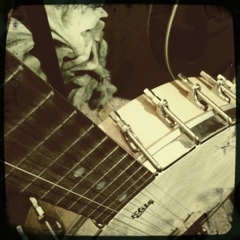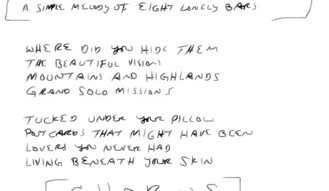Craft feels like a loaded word to me. It’s more than method or technique or skill. All of those things play into it but it’s so much more. Without craft, there can be no art. But it’s wrong to say that art is the output of craft. I believe that one can pursue the mastery of a craft in the absence of a desire to make art. Craft is deeper than that.
A craft is practiced. It is devotional in on sense. That devotion can be an end in itself. That isn’t to say that the output is unimportant. It simply might not be the goal.

For a long time, I confused craft with procedure or method. I was careless in my study of music theory when I was younger. When I met the work of John Cage and saw for the first time that the definition of music was broader than I was previously led to believe, I became obsessed with systems for composition. I followed several serial schools and dug deep into aleatoric music. I labored to design a way of composing that I could follow slavishly. I though that I was pursuing craft. I wasn’t. I was engaged in sophomore year academic masturbation (c’mon…sophomore year was when you read /Atlas Shrugged/…admit it!). After a few years of hard work with great teachers, I settled down and found something akin to real craft. Careful attention and experimentation. Focus on techniques and results. I wrote scores of scores and in the process learned a little more about the craft of composition.
Years later, when I took up instrument construction, I learned a lot more. Working with physical materials can illustrate concepts more directly sometimes. Like all revelations though, one must be ready to receive. My first instrument, a banjo, was built during the lowest point of my life. My mind was a mess and the only peace that I could find was in my garage with a block of sandpaper in my hand. I studied my materials. Watched them work. Experienced the steady pressure of clamps and the drying time of glue. In each of these processes I found a measure of joy. The precise and sometimes repetitive nature of the work rewarding me for a consistent performance and punishing deviations. There was a sense of right and wrong. Something beautiful and concrete that stepped beyond intent and desire into a place where the measure of success was relative and absolute at the same time.
So often in art technique gets its due where craft does not. What I try to remember is that when technique runs out, craft will carry me on.
